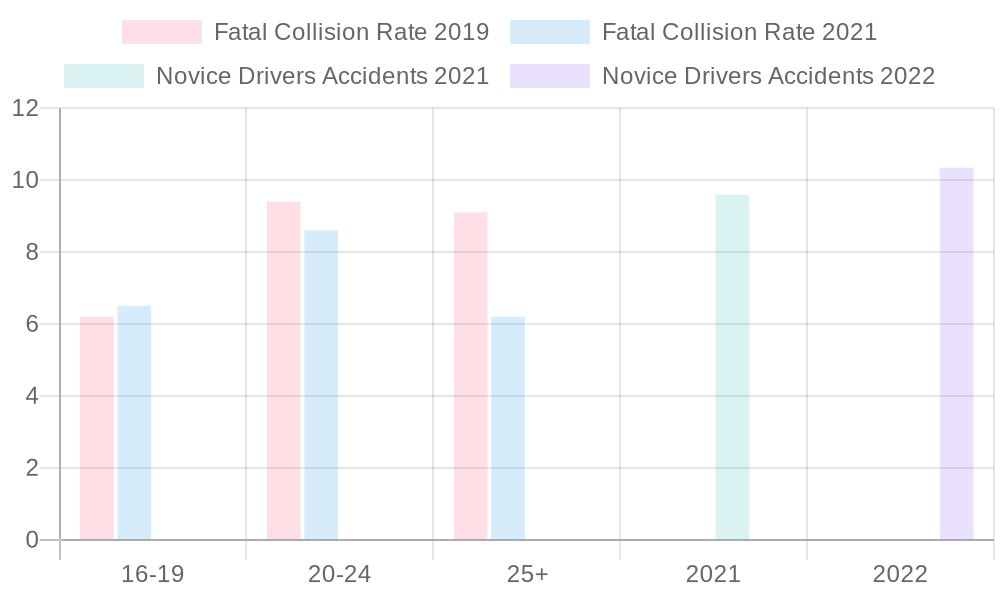The issue of dishonest testing in driver licensing poses a significant threat to road safety, especially highlighted by the recent suspensions issued by the Ontario Ministry of Transportation (MTO). This alarming development emerges from a series of fraudulent activities that undermine the integrity of driver training and testing. Take Tony, for instance, who sat fidgeting in despair, aware that his hard-earned truck driving career was on the verge of collapse due to these corrupt practices. He paid a hefty $5,000 for training, only to learn that the legitimacy of his qualifications was called into question.
“Integrity in driver training is essential for cultivating responsible drivers capable of making ethical decisions on the road. When the foundations of training are built on transparency and accountability, we create safer roads for everyone.”
The implications of this fraud are far-reaching; not only do they jeopardize the livelihoods of individuals like Tony, but they also pose serious risks to public safety on the roads. As we unravel the depth of this troubling issue, it becomes clear that stricter oversight and accountability are urgently required in the driver licensing process.
Ontario’s Measures Against CDL Fraud
In Ontario, the Ministry of Transportation (MTO) has implemented strict measures to combat commercial driver’s license (CDL) fraud, resulting in significant consequences for those found guilty of dishonest testing practices.
90-Day License Suspension
In a recent crackdown, the MTO suspended approximately 1,200 truck drivers’ licenses for 90 days due to alleged fraudulent practices during their testing and training. This action was taken because their qualifications were deemed unreliable, compromising road safety. The suspensions, effective from September 4, 2025, reflect the Ministry’s commitment to upholding the integrity of the licensing process.
Appeal Process
Affected drivers have the right to appeal their suspensions within seven days of receiving the notice. This appeal process is critical as it allows them to contest the suspension and potentially regain their driving privileges. Should the appeal succeed, drivers may also receive a refund of any fees associated with their application.
Tony’s Case
One notable individual affected by these measures is Tony, who, despite paying $5,000 for training, received a suspension due to questioning the validity of his qualifications. Unfortunately, Tony did not retain a receipt for his training, complicating his ability to prove the legitimacy of his course. This highlights the importance of keeping thorough documentation throughout the training process to avoid similar scenarios.
The overall situation calls for greater vigilance among drivers and underscores the need for proper oversight and accountability in the driver licensing process, ensuring that only qualified individuals are permitted on the roads.


Implications of Dishonest Testing
The prevalence of dishonest testing in driver licensing carries severe implications for the trucking industry and overall road safety. When drivers are allowed to operate without the necessary skills acquired legitimately, it creates a hazardous environment on our roads. The consequences extend beyond immediate safety risks, potentially leading to severe accidents, loss of life, and substantial economic repercussions.
To mitigate these risks, there is an urgent need for mandatory audits of driving schools and the licensing process. Regular inspections can help identify fraudulent practices and ensure that training programs meet the necessary standards, safeguarding both the drivers and the public. Implementing these audits not only enhances safety but also reinstates a system of accountability that has been sorely lacking.
Moreover, the scandal surrounding dishonest testing fundamentally damages public trust in the trucking industry and its regulatory bodies. When the very standards meant to uphold safety are compromised, the public loses confidence in the integrity of the licensing process.
This erosion of trust results in skepticism regarding the competencies of drivers on the road, potentially leading to calls for stricter regulations and oversight. If the industry wishes to maintain its reputation and ensure the safety of all road users, it must take proactive steps to eliminate dishonest practices and foster transparency. Such movements will be essential for restoring faith in the licensing system and ensuring that those who take to the roads are adequately trained and certified.
| Province | Appeal Body | Submission Process | Timeline | Fees |
|---|---|---|---|---|
| Ontario | Licence Appeal Tribunal (LAT) | Submit an application to the LAT for a hearing. | Must appeal within 7 days of suspension notice. | No fee for application. |
| Quebec | Société de l’assurance automobile du Québec (SAAQ) / Administrative Tribunal of Québec (TAQ) | Apply for review with SAAQ, potentially followed by appeal to TAQ with physician’s report. | 60 days for TAQ appeal after SAAQ decision. | No fee for review. |
| British Columbia | Superintendent of Motor Vehicles (ICBC) | Submit a Notice of Appeal and $50 fee (can be waived under specific circumstances). | Generally within 30 to 60 days after decision. | $50 fee, but can be waived. |
| Alberta | Office of the Registrar | Submit a Registrar Reconsideration application within 30 days of the initial decision. | Must appeal within 30 days of receiving decision. | No fee for reconsideration. |
Perspectives from Key Stakeholders
The issue of CDL and license fraud has drawn attention from key stakeholders in the trucking industry, underscoring the urgent need for reforms and robust oversight. Dakota Brasier, the Ontario Ministry of Transportation’s director of media relations, provided a critical perspective on the situation. He stated,
“We have zero tolerance for bad actors on our roads and have suspended the Ontario Class A commercial driver’s licences of individuals who we believe to have obtained them dishonestly during the Class A testing and/or training process.”
This statement emphasizes the Ministry’s commitment to maintaining rigorous standards for road safety and the integrity of the licensing process.
Stephen Laskowski, president of the Canadian Trucking Alliance, echoed these sentiments, spotlighting the dangers posed by non-compliant carriers. He remarked,
“The events surrounding the Humboldt tragedy have reminded all of us that we need to have a national conversation about raising the bar in dealing with those operators who do not make the proper investments in truck safety and lack the commitment to make improvements.”
His call for dialogue reflects the pressing need for industry-wide reforms to enhance safety standards.
Moreover, Laskowski discussed the impacts of practices like the Driver Inc. model, which misclassifies drivers as independent contractors, allowing companies to evade labor laws and taxes. He condemned this system as unfair and detrimental to the competitive landscape, demanding action to ensure compliance and accountability within the industry.
Further perspectives were shared by various organizations, such as the Owner-Operator Independent Drivers Association (OOIDA) and the American Trucking Associations (ATA), both advocating for strengthened standards in commercial driver training and licensing. The OOIDA urged for legislative reforms that prevent unqualified drivers from accessing the roads, while the ATA supported tighter oversight of non-domiciled CDLs, recognizing that gaps in enforcement pose significant risks to public safety.
These collective voices highlight the unequivocal consensus among stakeholders regarding the imperative need for comprehensive reforms in the testing and licensing processes. As the industry grapples with the repercussions of fraudulent practices, the urgency for regulatory action has never been clearer.
When it comes to freedom of information, Dakota Brasier from the Ontario Ministry of Transportation emphasized the importance of transparency in ensuring lawful and fair assessments in driver licensing.
Actions Taken by the Ontario Ministry of Transportation (MTO) and Outcomes
In the wake of uncovering dishonest testing practices in commercial driver licensing, the Ontario Ministry of Transportation (MTO) took decisive actions to ensure road safety and restore integrity to the licensing process. Here are the key steps taken and their outcomes:
- License Suspensions: Approximately 1,200 commercial truck drivers received 90-day suspension notices due to questionable practices during their training and testing. These suspensions were effective from September 4, 2025, compelling the affected drivers to immediately cease operations. This significant step highlights the MTO’s commitment to maintaining road safety by ensuring only qualified drivers are permitted to operate commercial vehicles.
- Retesting Requirements: The suspended drivers are required to undergo mandatory retesting to regain their licenses. They must pass both knowledge and road tests, with specific timelines provided for completion. This not only reinforces the standards expected from commercial drivers but also ensures those with previously fraudulent licenses have the opportunity to be properly trained and assessed.
- Appeal Process: Drivers impacted by the suspensions are entitled to appeal the decision to the Licence Appeal Tribunal. This process allows them to contest their suspensions and potentially recover any fees associated with their licensing applications, providing a layer of fairness and transparency to the procedure.
- Mandatory Audits: The MTO has initiated comprehensive audits of driving schools and training providers to identify and eliminate fraudulent practices within the system. This proactive measure aims to reinforce accountability in driver training and ensure compliance with established standards.
- Collaboration with Industry Stakeholders: In partnership with organizations like the Ontario Trucking Association, the MTO is advocating for ongoing improvements in driver training and licensing processes to ensure road safety is prioritized across the industry.
These rigorous measures collectively aim to enhance public trust in the licensing system and safeguard road users in Ontario.

This graph illustrates the fatal collision rates among different age groups from 2019 to 2021, alongside novice driver accident rates in 2021 and 2022. It emphasizes the importance of qualified driver training and the relationship between unqualified drivers and increased accident rates.
Conclusion
As elucidated throughout this article, the presence of dishonest practices in driver training and licensing poses monumental risks not only to individual livelihoods but also to overall road safety. The recent actions taken by the Ontario Ministry of Transportation (MTO) in suspending the licenses of 1,200 drivers reflect a significant step toward upholding integrity within the licensing process. Drivers like Tony, who are caught in this troubling web of fraud, highlight the pressing need for accountability and transparency in training programs.
Statistics show alarming trends related to unqualified drivers, with studies indicating higher crash rates associated with unlicensed or inadequately trained individuals. For example, the Quebec Association of Trucking noted a significant drop in accidents but maintained that untrained drivers continue to exhibit reckless behaviors that threaten road safety.
In light of these findings, it is imperative for public and industry stakeholders to unite in advocating for stricter regulations and mandatory audits of training schools. Only through collective action can we fortify our roads against dishonesty and restore public trust in the driver licensing system. All drivers deserve proper training, and the safety of our communities relies on the integrity of those who take to the roads.
Key Areas of Concern
- Fraudulent Practices: The dishonest testing during licensing erodes the safety framework.
- Impact on Road Safety: Unqualified drivers on the road can lead to heightened accident rates.
- Regulatory Response: Understanding how the MTO is addressing these fraudulent acts is crucial.
Next Steps in Addressing Fraud
- Increased Oversight: Implementing regular audits and reviews of training facilities.
- Public Awareness: Educating potential drivers about the importance of legitimate training practices.
- Stakeholder Collaboration: Encouraging dialogue among industry leaders to create more stringent standards.
